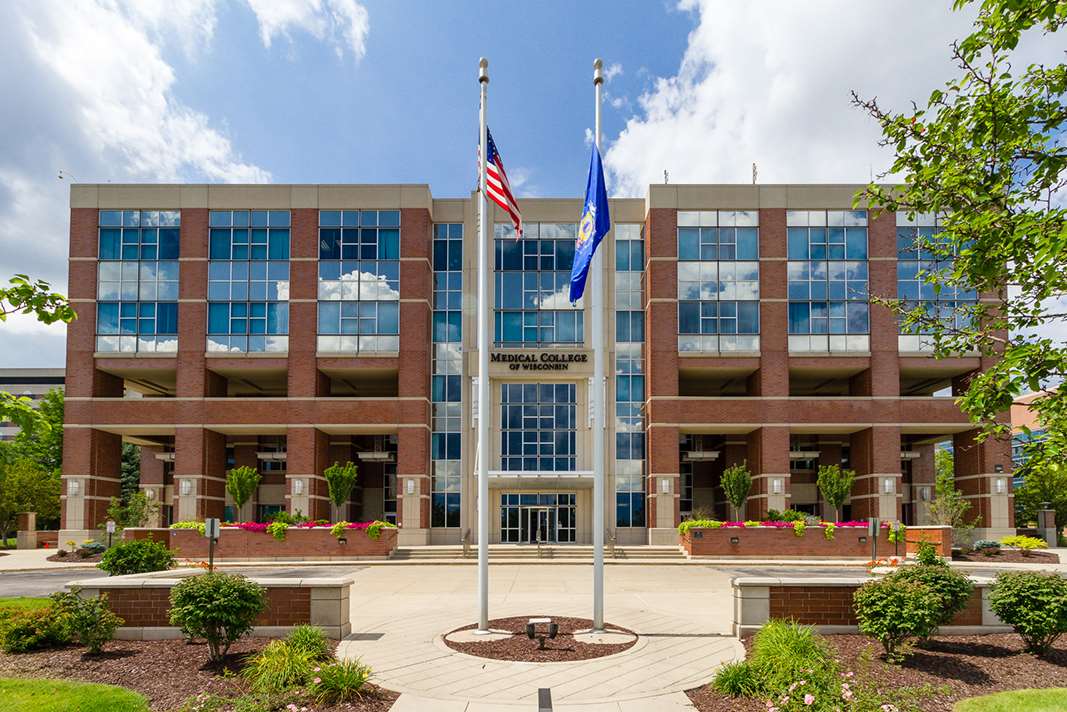Research Seeks to Unlock Mysteries of Late-Life Depression
Late-life major depression is a growing public health issue already affecting more than 5 million individuals in the US.
Milwaukee, Oct. 11, 2017 – With an aging population, including a significant number of baby boomers, late-life major depression (LLD) is a growing public health issue already affecting more than 5 million individuals in the US, according to Joseph S. Goveas, MD, associate professor of psychiatry and behavioral medicine and training director of the Medical College of Wisconsin (MCW) Geriatric Psychiatry Fellowship Program. Goveas, who is the co-primary investigator (PI) of the project, and a team of researchers are pioneering a study that is looking to piece together the puzzle of what in the brain causes LLD.
“We currently diagnose depression based on clinical symptoms, but in this study we will look at biological measures that could assist clinicians in the future by improving diagnostic sensitivity of LLD,” said Goveas. “Current treatment options for LLD have limited effectiveness,” he added.
Goveas believes that a better understanding of biomarkers in the brain could improve the lives of those who suffer from LLD. “These biomarkers can serve multiple, important potential treatment purposes, not only in terms of treatment intervention selection but also the way we discover effectiveness of future treatments and how soon we can identify non-response to current and future therapies,” Goveas said.
Also serving as co- PI on the study is Cecilia J. Hillard, PhD, professor and director of the Neuroscience Research Center at MCW and an expert in endocannabinoid research. Co-investigators on the project are Shi-Jang Li, PhD, professor of biophysics and psychiatry and behavioral medicine at MCW, and Yang Wang, MD, PhD, associate professor of radiology and biophysics at MCW. Other key personnel include B. Douglas Ward, MS, senior biostatistician in the Department of Biophysics at MCW, Gang Chen, PhD, research scientist in the Department of Biophysics at MCW, and Stacy Claesges, BA, clinical research coordinator at MCW’s Department of Psychiatry and Behavioral Medicine. Ahmad R. Hariri, PhD, professor of psychology and neuroscience and director of the Laboratory of NeuroGenetics at Duke University will serve as a consultant on the study.
For more information or if you would like to participate in the study, please contact Stacy at 414-955-8970 or Dr. Goveas at 414-955-8983.
About the Medical College of Wisconsin
Founded in 1893, The Medical College of Wisconsin is dedicated to leadership and excellence in education, patient care, research and community engagement. More than 1,200 students are enrolled in MCW’s medical school and graduate school programs in Milwaukee, 56 medical students enrolled at MCW-Green Bay, and 26 students matriculated to MCW-Central Wisconsin in 2016. MCW’s School of Pharmacy opened in August 2017. A major national research center, MCW is the largest research institution in the Milwaukee metro area and second largest in Wisconsin. In FY2015, faculty received more than $158 million in external support for research, teaching, training and related purposes. This total includes highly competitive research and training awards from the National Institutes of Health (NIH). Annually, MCW faculty direct or collaborate on more than 3,200 research studies, including clinical trials. Additionally, more than 1,500 physicians provide care in virtually every specialty of medicine for more than 525,000 patients annually.
NOTE: This press release was submitted to Urban Milwaukee and was not written by an Urban Milwaukee writer. While it is believed to be reliable, Urban Milwaukee does not guarantee its accuracy or completeness.
Recent Press Releases by Medical College of Wisconsin
Midwests Only Holistic Brain Injury Treatment Program for Military Veterans and First Responders Adds Staff, Space Due to Rapid Growth
Dec 8th, 2025 by Medical College of WisconsinThe BRAVE program outgrows its initial space in less than two years.
Audaxity Bike Ride Raises More Than $1 Million to Accelerate Cancer Research at the Medical College of Wisconsin Cancer Center
Nov 13th, 2025 by Medical College of WisconsinFunds from the inaugural community ride will help turn discoveries into new cancer treatments, train future physician-scientists, and expand community-driven research efforts.






















